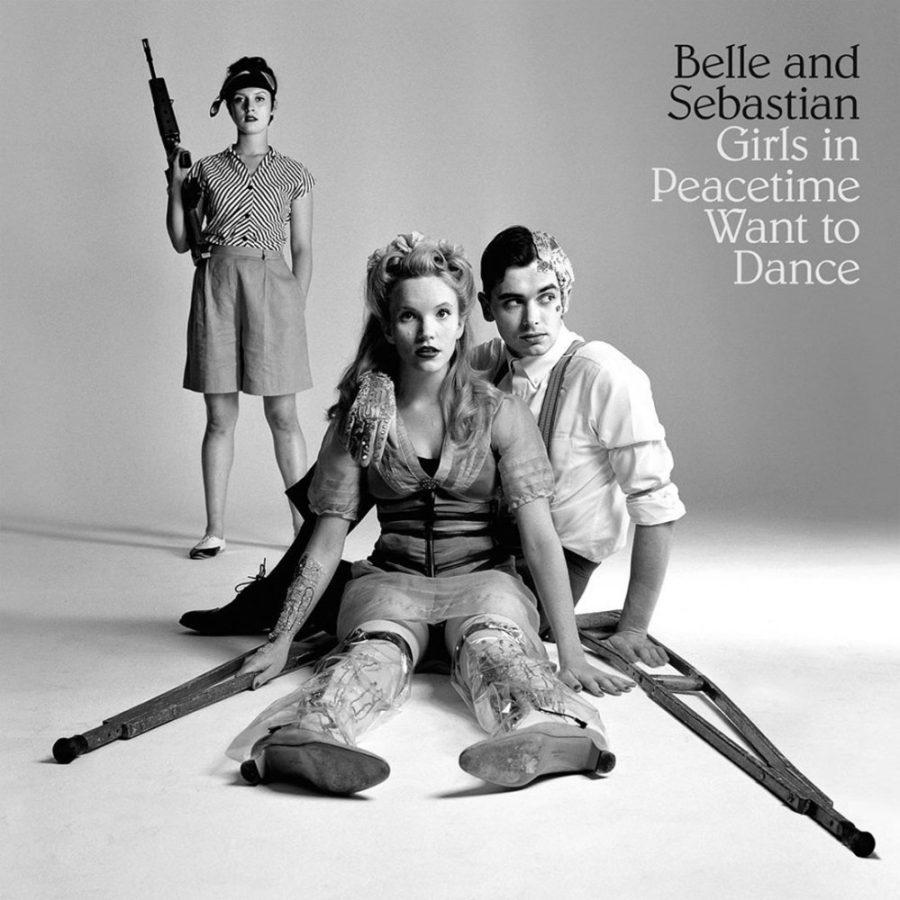Girls in Peacetime Want to Dance, the ninth LP from Scottish indie-pop band Belle and Sebastian, comes after a five-year hiatus. In two decades of heartwarming pop, nothing much has changed for Belle and Sebastian. There’s bandleader Stuart Murdoch, a soft-spoken guy blending sweet melodies and witty, bookish lyrics, and multi-instrumentalist Sarah Martin, contributing angelic violin and vocals every now and then, making the music all the sweeter.
Girls in Peacetime Want to Dance breaks from their usual sound in unsubtle, yet interesting ways. Influences of world music and europop meet smooth twee pop, a genre that perfectly describes the simplistic, melodious elevator music that Belle and Sebastian do so well.
The album’s opener, “Nobody’s Empire,” deals with topics of social anxiety and angst in an ever-developing world and then getting locked up in a mental institution and loving it.
“Play for Today” mixes in-your-face eurodance and pretty lyrics, making it seem like a German “Schlager” in an ironic yet melodious way. In “The Cat with the Cream,” Belle and Sebastian appear as a sleepy, androgynous throwback to 1960s pairings like Nancy Sinatra and Lee Hazlewood.
“The Everlasting Muse” plays with Greek sirtaki elements aligned with bluesy beats. Changes in tempo and folky instruments such as zither and flute make this song, next to the album’s funky, synth-laden lead single “The Party Line,” by far the catchiest, most memorable of the record.
Ben H. Allen III, who had previously worked with artists such as Animal Collective and M.I.A., produced Girls in Peacetime Want to Dance. The Atlanta-based producer clearly pushed Belle and Sebastian to expand their music into new spheres, but he smoothed and polished the record almost too much for nostalgic fans, making it a less memorable one. While it cannot keep up with 1996’s iconic If You’re Feeling Sinister, Girls in Peacetime Want to Dance is quite enjoyable when given time.
In “Enter Sylvia Plath,” a female character advises Murdoch to “be popular, play pop” in order to be loveable. Belle and Sebastian have evidentially taken this to heart, but this only makes the record weaker, with less emphasis on the usually heartfelt lyrics.
Murdoch’s chime-of-a-bell voice and the band’s unhurried, sophisticated tone made the Scots a household name in indie pop.
Girls in Peacetime Want to Dance is not a weak record. However, the band’s newfound love for retro disco and the ironic character of the songs take some getting used to. Yet, since Belle and Sebastian stay true to their twee roots with sensible, intelligent and honest pop, the record is the perfect soundtrack for a lazy Sunday with an occasional silly dance break.
_______________
Follow Caren Badtke on Twitter.









